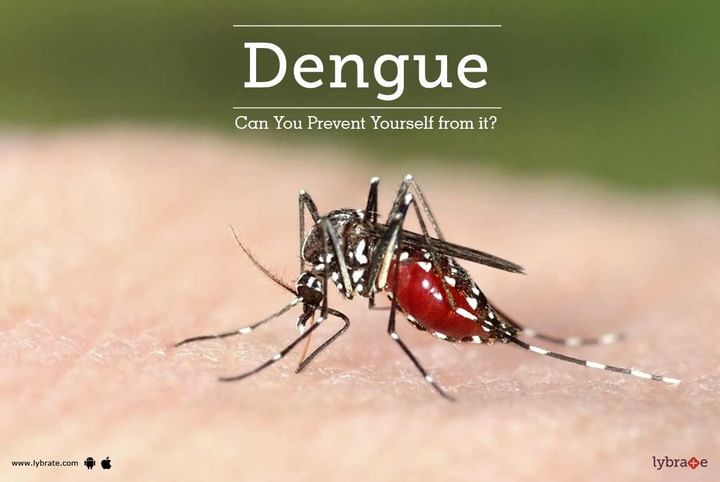Dengue - Can You Prevent Yourself from it?
Dengue is caused from the bite of the ‘Aedes Aegypti’ mosquito. This mosquito has been known to breed and survive in tropical and subtropical regions. A waterborne disease, it causes extreme discomfort and pain, even death is a possibility. Statistics suggest that each year, the number of people afflicted with dengue is around 390 million. Out of this huge number, 96 million tend to develop severe illnesses wherein hospitalization becomes mandatory.
Causes
-
It is primarily caused due to the bite of the ‘Aedes aegypti’ mosquito.
-
A mosquito becomes infected with dengue if it bites an already infected person. The disease can be transmitted to any healthy person that this infected mosquito bites next.
-
Living near a stagnant water body or an open drain makes you the most vulnerable to this disease. Letting water accumulate in open containers or spaces over a period of time makes it the perfect breeding ground for all types of mosquitoes.
Symptoms
On being infected, the symptoms generally last for around 10 days. Some of the common symptoms are:
-
Excruciating pain behind the eyes
-
Severe headache
-
Sudden high fever with chills
-
Skin rash which generally appears two to five days after you get infected
-
Nose bleeding, easy bruising and bleeding gums
-
Severe muscle and joint pain
It should be noted that these symptoms can be easily mistaken for high fever or any other viral infection. Therefore, getting tested as soon as these symptoms start appearing is very important.
If the dengue is left untreated or not treated on time, it can result in dengue haemorrhagic fever. This condition causes nose bleeding (due to damage to the blood vessels), high fever and failure of the circulatory system as well as the enlargement of liver.
Ways to prevent dengue include
-
Avoid storing water in containers
-
Wear clothes that cover your whole body, if possible
-
Maintain hygiene and clean your immediate surrounding frequently
-
Use mosquito repellent
-
Use a mosquito net around your bed
In worst case scenarios, death is a possibility as a result of dengue haemorrhagic fever or dengue shock. Many countries consider dengue to be an epidemic. You need to be on complete bed rest while drinking adequate amounts of fluids if you need to recuperate from dengue.
Treatment
There is no specific antiviral medication that is available for the treatment of dengue. In general, Acetaminophen (paracetamol) is usually recommended for treating fever and pain associated with dengue. Medications such as Aspirin, other salicylates and nonsteroidal anti-inflammatory drugs (NSAIDs) must be avoided. If you wish to discuss about any specific problem, you can consult a doctor and ask a free question.



+1.svg)
